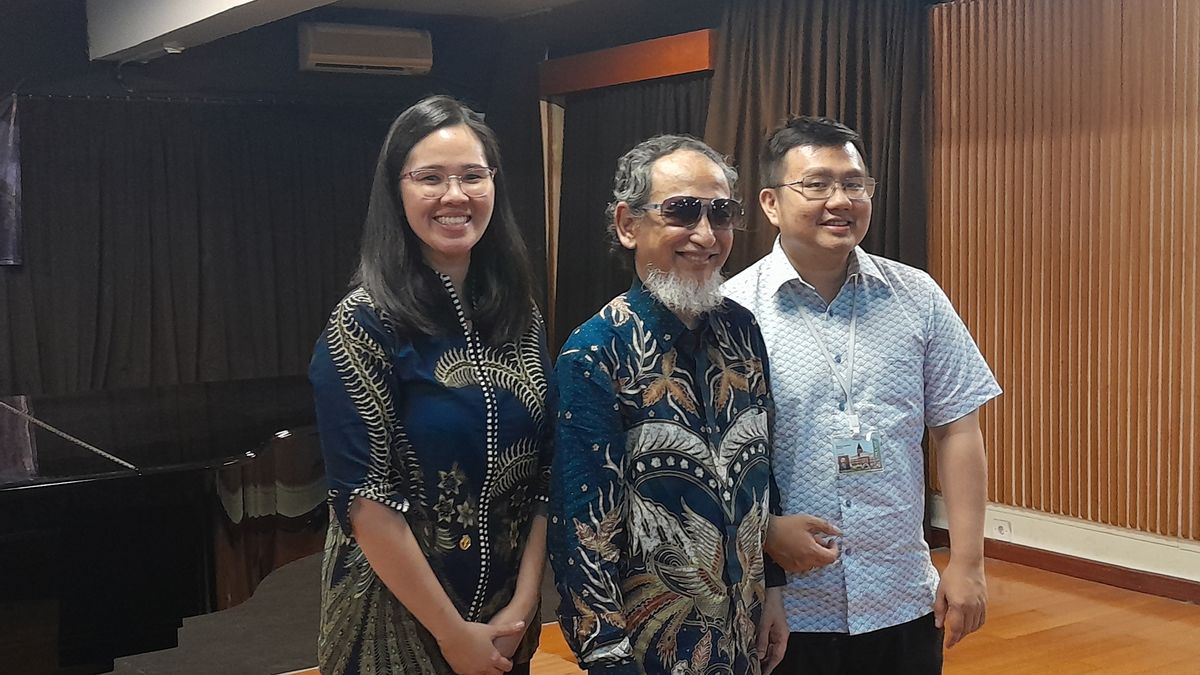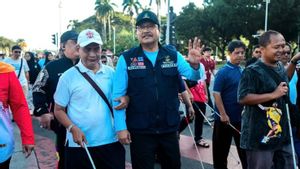JAKARTA - The UPH Observatory of Music held a franchise with the title UPH Music Education X Music Therapy National Symposium on December 1-2.
This symposium presents several speakers from within and outside the country. They discuss various themes regarding music education and music therapy.
The Karnila Putri raid as a lecturer at the UPH Conservatory of Music as well as the organizer stated that this convention was held to provide more insight for students, but it was also not closed to the general public.
Especially music therapy, there are still many people who do not know the term. In fact, the practice has been going on for quite a long time, especially in Europe and the United States.
Terapi musik pada dasarnya penggunaan kegiatan-kegiatan musik baik itu berupa kegiatan pasif maupun kegiatan aktif, tapi untuk mencapai tujuan non-mussikal seperti kebutuhan fisik, psikologik, kebutuhan kognitif, kebutuhan bicara, dan lainnya," kata Kezia saat ditemuai penggemuan hari pertama.
In learning music therapy in lectures, various things are studied, from theory to field practice.
"So we learn the history of music therapy, the approach is music therapy. There are always subjects for Music Therapy Engineering, where we learn musical therapy techniques such as Neurologic Music Therapy, there is Clinical Improvision, there is Therapy Songwriting," said Kezia.
"Well, from the technical class, usually in the third and fourth years there are four semesters where students practice field. Field practices are various kinds, because music therapy is an area of work, it can be in extraordinary schools, inclusion schools, mainstream schools or in hospitals," he continued.
As a teacher in the field of therapeutic music, Kezia hopes that therapeutic music can be better known to the Indonesian people. Compared to countries that have already practiced therapeutic music, he hopes that the development and practitioners of therapeutic music in the country will increase and grow.
"What is certain is that we (Indonesia) have far fewer human resources. If we go abroad, there are already a lot of human resources, so advocacy for the work of therapeutic music is wider and higher there. For example, for workers or practice in the field, we still rarely see how people want to know music therapy, "said Kezia.
"So, that's what we are fighting for, we are trying to create a music therapy education program not only conventional training at universities like this, but also developing programs that add human beings in the field by way of a hybrid training program," he continued.
The English, Chinese, Japanese, Arabic, and French versions are automatically generated by the AI. So there may still be inaccuracies in translating, please always see Indonesian as our main language. (system supported by DigitalSiber.id)










